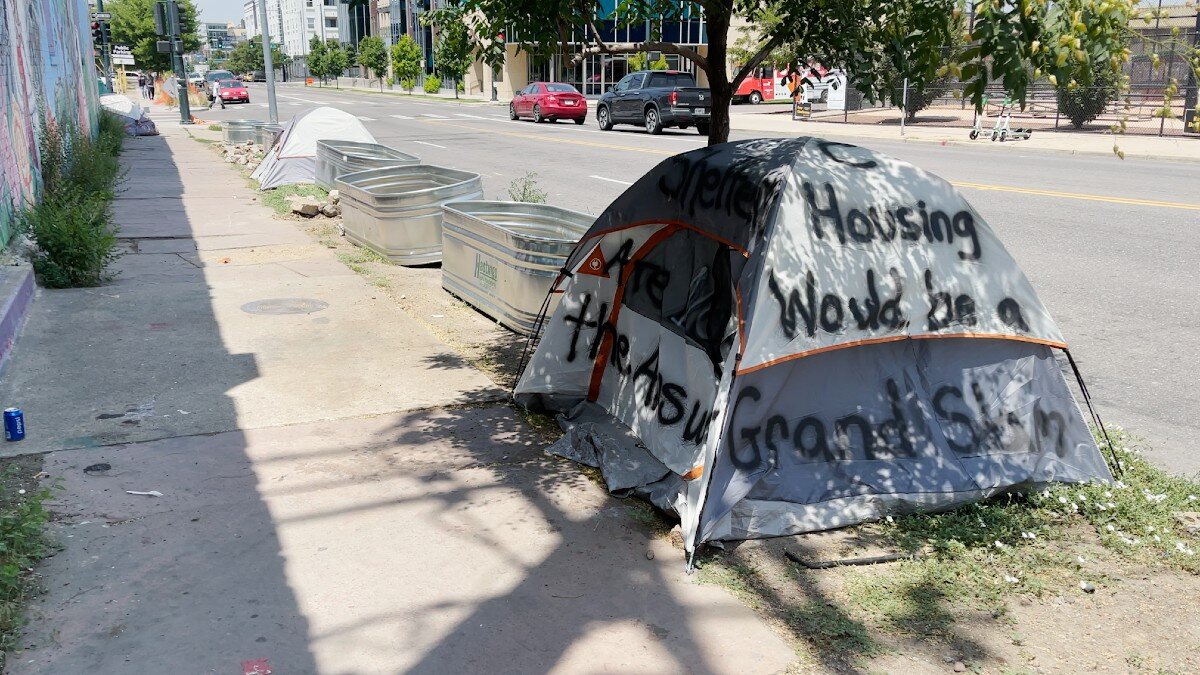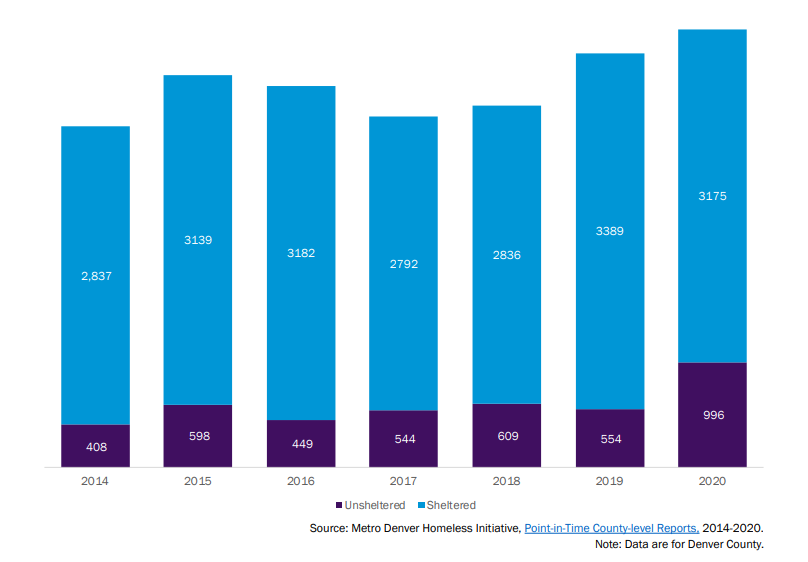Study: First-time homelessness doubled in Denver area over the past year

DENVER — Every year, the Metro Denver Homeless Initiative (MDHI) conducts a “Point in Time Count” to determine how many people are experiencing homelessness in the Denver area.
This year’s report found a “drastic increase” in the number of people in Denver experiencing homelessness for the first time, a surge that surveyors attributed to the impacts of the COVID-19 pandemic.
“In 2020 there were 1,273 people in shelters that were experiencing homelessness for the first time,” said Dr. Matt Meyer, MDHI’s executive director. “This year, that number doubled to 2,530 demonstrating the devastating effects of COVID-19 on the stability of our neighbors.”
This year’s survey was conducted on a single day in February. MDHI found that in the Denver metro area, 5,530 people were staying in shelters, about a 1,000-person increase from last year’s study, which was conducted before the pandemic started.
Benjamin Dunning with the advocacy group Denver Homeless Out Loud (DHOL) told Rocky Mountain PBS that the true number of people experiencing homelessness is probably even higher. Dunning explained that the pandemic made counting the number of unhoused people difficult, and that because the results of the Point in Time survey are self-reported, many unhoused people do not respond to the survey and are therefore not counted.

This year, MDHI did not include the number of unsheltered people in their study because of COVID-19. In 2020, there were 1,561 people experiencing unsheltered homelessness in the Denver metro area. Advocates believe that number has increased over the past year.
“The number of folks [...] that are out on the street probably tripled,” Dunning estimated.
Nearly three-quarters of the people experiencing sheltered homelessness were staying in emergency shelters. MDHI said individual sheltered homelessness increased by 27 percent over the last year.
“Unlike other parts of the country where shelter space was decreased during COVID-19, our community worked diligently to meet this challenge and stood up additional shelter spaces to help ensure the safety of those who needed it most,” Meyer added. “We are incredibly grateful for the hard work and dedication of our providers in responding to increased need while crafting creative solutions to meet the demand for those experiencing homelessness.”
Recently, the City of Denver’s Department of Housing Stability (HOST) released a five year plan to address problems surrounding housing and homelessness in the city. One of HOST’s 14 main goals is to reduce unsheltered homelessness by half.
“While the 2021 PIT did not include a count of people experiencing unsheltered homelessness, due to the circumstances related to the pandemic, job loss experienced during the public health emergency increased the number of people living in unstable conditions and losing their homes,” the HOST plan reads.
The HOST plan also shows that there were more unsheltered homeless people in Denver last year—nearly 1,000 people in Denver County—since at least 2014.
“We know that unsheltered homelessness has become a more visible presence in Denver even as we are sheltering more people nightly than ever before,” the authors of the plan wrote.

You can read the full five-year plan here.
The full MDHI Point-in-Time report for 2021, which will include individualized data for Adams, Arapahoe, Boulder, Broomfield, Denver, Douglas and Jefferson counties, will be published this fall. Past reports dating back to 2005 are available here.
Kyle Cooke is the Digital Media Manager for Rocky Mountain PBS. You can reach him at kylecooke@rmpbs.org.